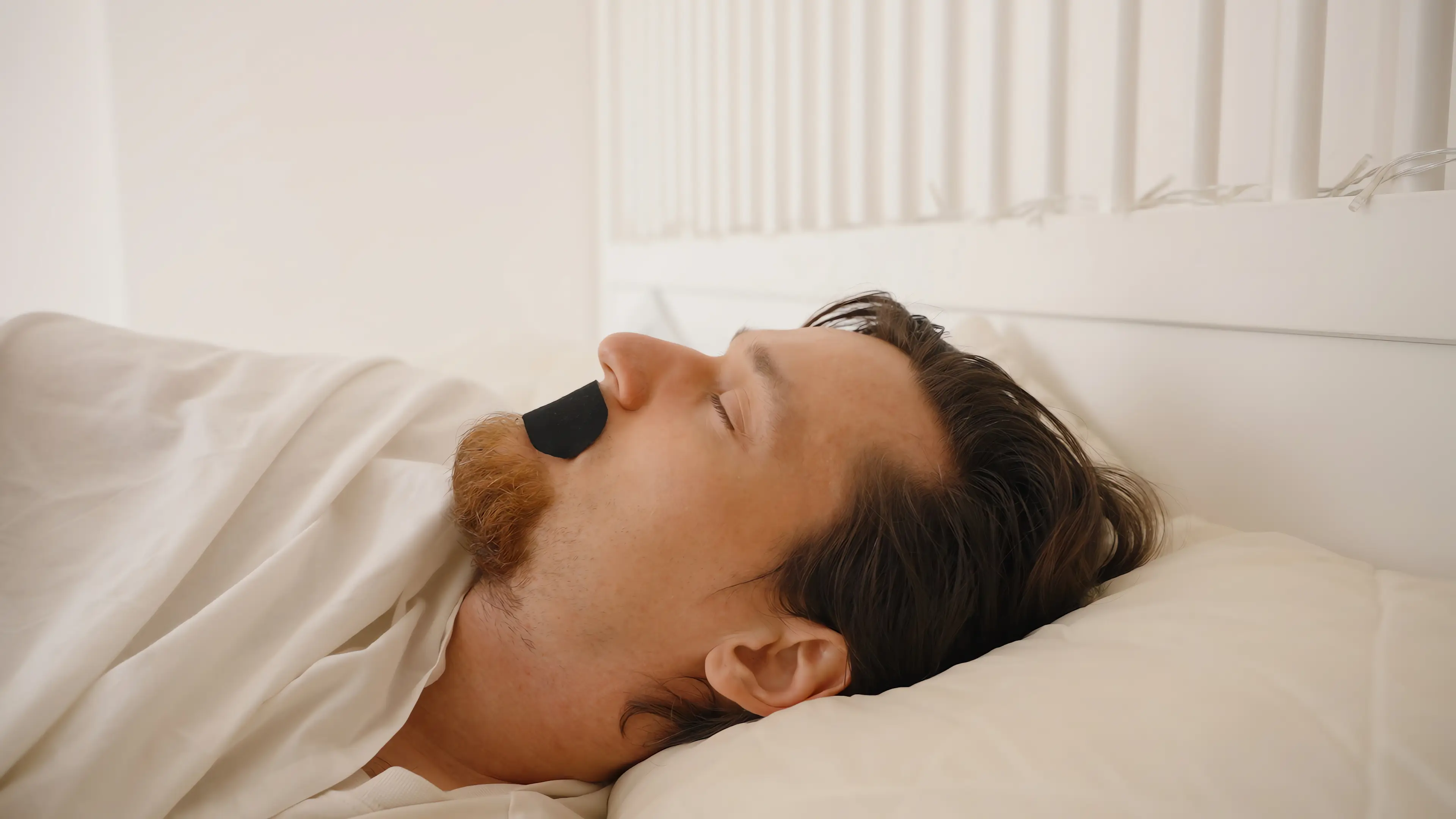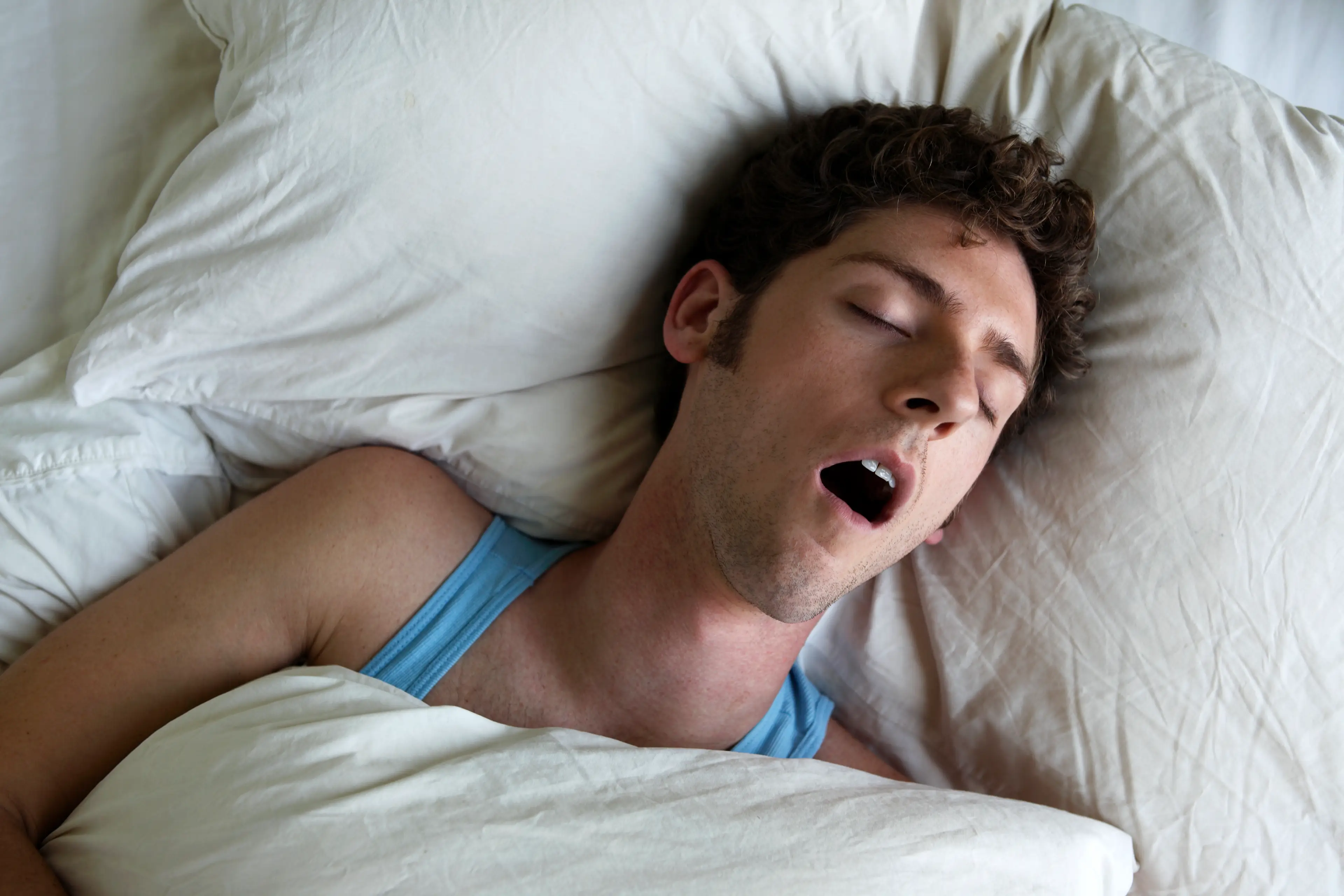
Mouth taping might be all the rage at the moment, but medical experts have now warned that it comes with 'serious risks'.
The bedtime ritual has become a popular trend online over the last couple of years and thousands of people have given it a go - including stars such as Manchester City's Erling Haaland.
It essentially stops you from breathing through your mouth during the night, instead forcing you to rely on your nostrils - which supposedly brings you loads of health benefits.
Luisa Bazan, M.D., a sleep specialist at Henry Ford Health, explained that inhaling air through our nose 'filters the air you breathe', removing dust, allergens and pollutants.
Advert
"[It] also activates the lower lungs, allowing you to take deeper breaths," she explained.
The alleged benefits of mouth taping are said to include lower blood pressure, less snoring, better sleep, improved concentration and banishing dry mouth.
Even dental experts have suggested it can be helpful, as Colgate says that mouth taping can lead to fewer cavities, a decreased risk of gum disease, increased REM sleep and cognitive function, as well as better breath.
But a new study has now called these claims into question, as researchers at Western University in Canada have shared some alarming findings about the trend which has taken social media by storm.

In the research paper published on 21 May, the experts explained that they had reviewed a number of studies which delved into mouth taping, dating back as far as 1999, which involved 233 different patients.
Specifically, they were looking to find out if people with sleep-disordered breathing actually got anything out of taping their lips together while they got their head down.
Out of the 10 research papers the experts reviewed, only two reported that a small amount of people with mild obstructive sleep apnea (OSA) had experienced 'some slight improvement' in their sleep.
For those who don't know, OSA is when your breathing stops and starts while you are sleeping.
Some studies also found 'very minor improvements' in the number of times participants blood oxygen level dropped during sleep and snoring.
The Canadian boffins said that these benefits were 'minimal' and 'not clinically significant' for people who suffer sleep disorders, instead concluding: "There are potential serious detrimental health outcomes to those with nasal obstruction who seek oral taping as means to ameliorate their mouth breathing.
"The existing data does not support mouth taping or oral occlusion as a sound clinical intervention for the general population with sleep disordered breathing."
Essentially, the majority of the studies which the experts looked at didn't suggest that mouth taping was as magical as it's touted to be online.

"Mouth taping is a contemporary practice that is often celebrity-endorsed, but is not necessarily scientifically accurate," the study’s authors explained. "Many people are not appropriate for mouth taping, and in some cases it can lead to risk of serious health harm."
Meanwhile, four of the ten studies pointed out that there is a potential risk of asphyxiation for those who tape their mouths during sleep while having a 'serious restriction or blockage of nasal airways'.
Simple conditions such as hay fever, a deviated septum and enlarged tonsils can all cause this.
"There was explicit discussion in four out of ten of the studies indicating that oral occlusion either through taping, sealing, or chin strapping could pose a serious risk of asphyxiation in the presence of nasal obstruction or regurgitation," the study stated.
Essentially, if you've got sleep-disordered breathing, such as obstructive sleep apnea, or a long-term issue with your nose, the researchers reckon you should steer clear of mouth taping.
Some of us just apparently aren't good candidates for it, although the study's authors did say that further research into the 'clinical benefit this practice may have' is required.
But as it stands, they weren't too impressed by the supposed benefits of the trend - so you might want to think twice before you get your tape out tonight.